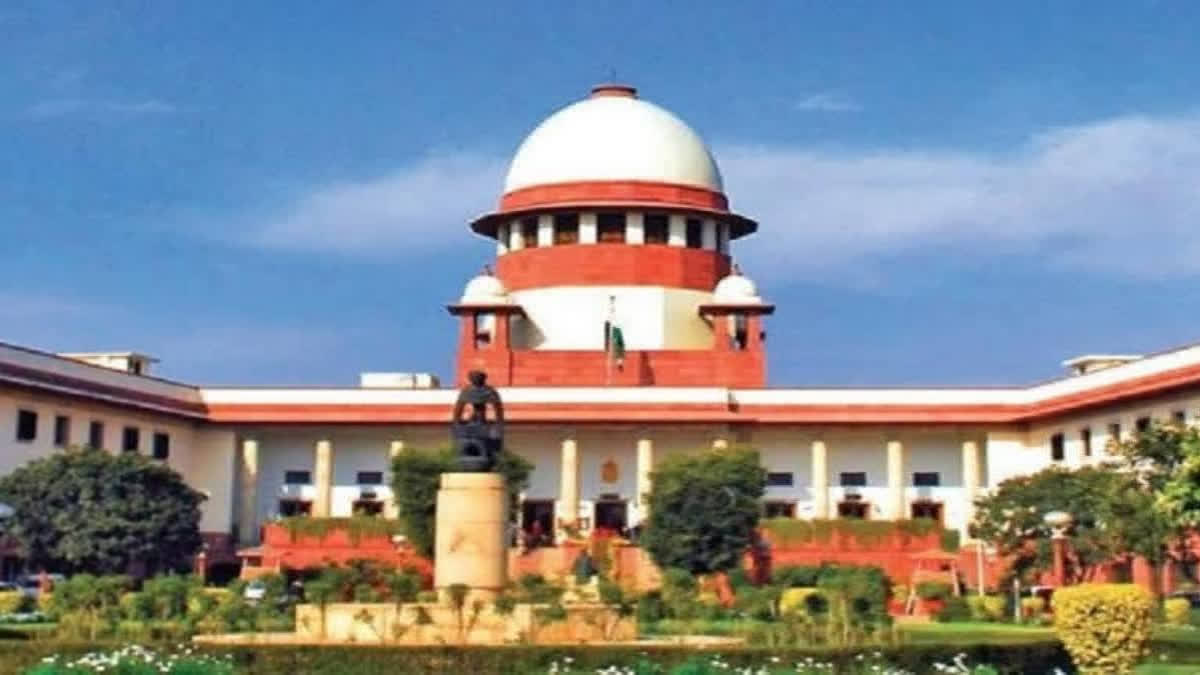New Delhi: The Supreme Court has said that society expects every judge of a High Court (HC), to be a model of rectitude, an epitome of unimpeachable integrity and unwavering principles, while expressing its discontent with the long delay by HC judges in releasing reasoned orders.
A bench comprising justices Dipankar Datta and Prashant Kumar Mishra set aside an order passed by a Gujarat High Court judge, which was released on April 30, 2024, after a gap of one year after being pronounced in open court. The high court had pronounced the order in open court on March 1, 2023.
Justice Datta, who authored the judgment on behalf of the bench, said: “The society expects every judge of a high court, so to say, to be a model of rectitude, an epitome of unimpeachable integrity and unwavering principles, a champion of moral excellence, and an embodiment of professionalism, who can consistently deliver work of high-quality guaranteeing justice”.
“It is our duty as judges to stand tall and rise to the challenge”, said Justice Datta, in a judgment delivered on October 21, adding that dealing with lakhs of litigation is no mean task, but at the same time "we must realize that instances do emerge leaving absolutely no margin for error".
Justice Datta said since the fraternity of learned judges of all the courts are interested in preserving the dignity of the respective judicial institutions with which they are associated, all judges must be mindful of the impact of their actions on society at large.
The bench, acting on a plea by Ratilal Jhaverbhai Parmar and others, said the judge "could have avoided committing an act of indiscretion, by breaching all norms of ethics, in proceeding to assign reasons more than a year later."
Criticizing the long delay by HC judges in releasing reasoned orders, the bench stressed that it should be done preferably within two days but in any case, not beyond five days to eliminate any kind of suspicion in the mind of the party losing the legal battle.
The bench said all judges must be mindful of the impact of their actions on the society at large. The bench said the judges, after hearing a matter, may pick any one of the three options: dictation of the judgment in open court, reserving the judgment and pronouncing it on a future day, or pronouncing the operative part and the outcome, i.e., “dismissed” or “allowed” or “disposed of”, while simultaneously expressing that reasons would follow in a detailed final judgment supporting such outcome.
"It would be in the interest of justice if any judge, who prefers the third option, makes the reasons available in the public domain, preferably within two days thereof but, in any case, not beyond five days," the court directed.
Citing wide coverage of court proceedings through social media platforms, the bench said the presiding officers of courts are equally at the centre of attention as the controversy that is involved and the manner of its resolution.
The bench had called for a report from the HC's registrar general and perused the record of proceedings available on the virtual platform. The apex court said the allegations made by the petitioners were substantially correct. “The weight of work on learned Judges of the high courts across the country is immense and the Judges have also been performing commendably despite various odds, instances such as the one under consideration, which we view as nothing more than an aberration, bring disrepute to the judicial system of the country and show the entire judiciary in poor light”, said Justice Datta. The apex court has remanded the matter to the high court for consideration afresh.



